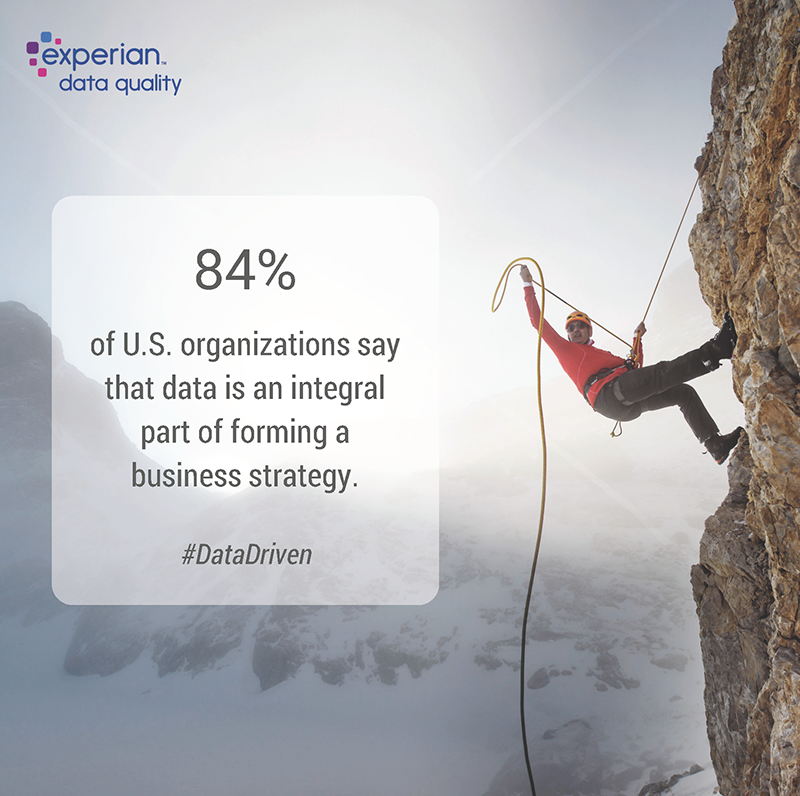 Today we are living in a world of data.
Today we are living in a world of data.
It is everywhere, affecting many aspects of not only how our businesses are run, but our individual lives. It is growing in value and becoming more significant with each year. When used correctly, it has the potential to make positive changes.
The challenge is that while data is everywhere, we don’t always trust it. While many businesses today say that data is driving new opportunities around increasing revenue and better serving their clients, the level of accuracy within their data is lacking.
According to new Experian Data Quality research, less than half of organizations globally trust their data to make important business decisions.
That level of doubt is causing 52% of organizations to rely on educated guesses or gut feelings to make decisions based on their data. That lack of clarity is causing businesses to not only operate with less efficiency, but 73% of c-level executives indicate that inaccurate data is undermining their ability to provide an excellent customer experience.
While many are making strides to try to improve the quality of data and the trust level, they are often hindered by departmental silos and a lack of consistency across data sources. Much of that comes down to basic communication and an ability to talk about data. Departments lack understanding of how information is used across an organization or what the true impact is of poor data.
In my discussions across the industry, it is clear that data lacks a consistent, meaningful language. We tend to focus on the level of pure accuracy levels, rather than the effect to the business or the customer. Data strategies need to more closely relate to defined business goals, outcomes and use cases, rather than just a data policy that sits within a vacuum.
In the year ahead, we expect that many businesses will make strides within their data management programs and improve the quality of data. However, for those programs to be successful, they need to tie to broader business objectives. In those instances, developing more trusted data will certainly pay off.
To learn more, check out the new global data management benchmark report.